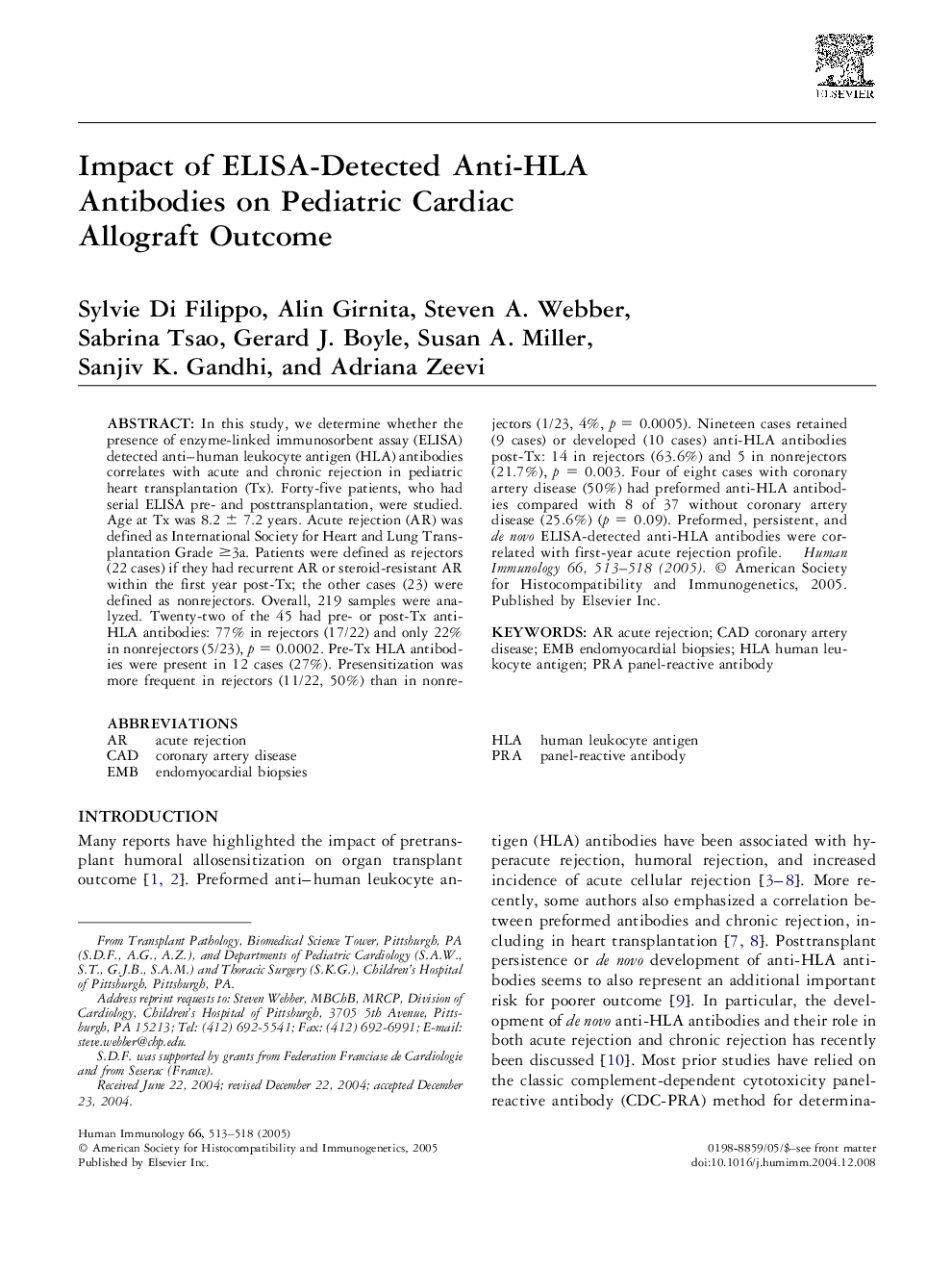| Article ID | Journal | Published Year | Pages | File Type |
|---|---|---|---|---|
| 9264192 | Human Immunology | 2005 | 6 Pages |
Abstract
In this study, we determine whether the presence of enzyme-linked immunosorbent assay (ELISA) detected anti-human leukocyte antigen (HLA) antibodies correlates with acute and chronic rejection in pediatric heart transplantation (Tx). Forty-five patients, who had serial ELISA pre- and posttransplantation, were studied. Age at Tx was 8.2 ± 7.2 years. Acute rejection (AR) was defined as International Society for Heart and Lung Transplantation Grade â¥3a. Patients were defined as rejectors (22 cases) if they had recurrent AR or steroid-resistant AR within the first year post-Tx; the other cases (23) were defined as nonrejectors. Overall, 219 samples were analyzed. Twenty-two of the 45 had pre- or post-Tx anti-HLA antibodies: 77% in rejectors (17/22) and only 22% in nonrejectors (5/23), p = 0.0002. Pre-Tx HLA antibodies were present in 12 cases (27%). Presensitization was more frequent in rejectors (11/22, 50%) than in nonrejectors (1/23, 4%, p = 0.0005). Nineteen cases retained (9 cases) or developed (10 cases) anti-HLA antibodies post-Tx: 14 in rejectors (63.6%) and 5 in nonrejectors (21.7%), p = 0.003. Four of eight cases with coronary artery disease (50%) had preformed anti-HLA antibodies compared with 8 of 37 without coronary artery disease (25.6%) (p = 0.09). Preformed, persistent, and de novo ELISA-detected anti-HLA antibodies were correlated with first-year acute rejection profile.
Keywords
Related Topics
Life Sciences
Immunology and Microbiology
Immunology
Authors
Sylvie Di Filippo, Alin Girnita, Steven A. Webber, Sabrina Tsao, Gerard J. Boyle, Susan A. Miller, Sanjiv K. Gandhi, Adriana Zeevi,
